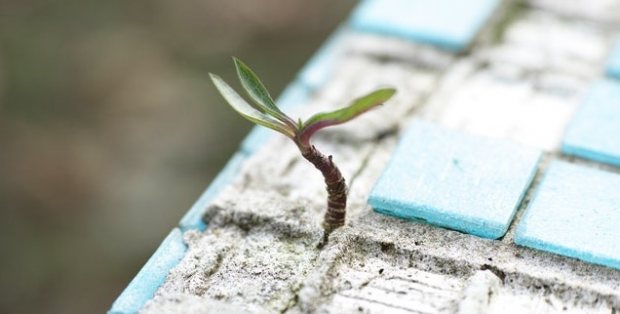
January 2021
This month's voice:
Anika Casem, "What's Your New Year's Resolution?"
Introduction
Lindsay Herron
Editor, KOTESOL Voices
I've never been a fan of New Year's resolutions, personally. I think I've always been bothered by the implication that self-improvement can be concretized, quantified, and encapsulated—growth distilled down to a checklist rather than perceived as an always-emerging, perpetual process. (Of course, it didn't help that the few resolutions I've written in life are still unfulfilled! Decades later, I'm still biting my nails, not fully fluent in a foreign language, carrying around more than a few extra kilos, lacking a doctorate, and... well, just generally lacking. It's all too easy for New Year's resolutions to highlight perceived deficits rather than strengths.)
Perhaps that's why Anika's piece for KOTESOL Voices this month really speaks to me. She explores not only the promise and potential but also the pressure of the new year and New Year's resolutions. It is, I think, a thoughtful reflection on goals for the coming year—what they are, where they might come from, and the need for flexibility and self-compassion as we ponder ourselves and our place in the world. Perhaps New Year's resolutions are best viewed as an opportunity to inspire ourselves, a chance to focus on our overall aspirations and get excited about identifying (and then accomplishing) manageable steps on our respective paths. It can be empowering and freeing, as well, to realize these goalposts—and even the paths, themselves—can evolve and change as opportunities and challenges emerge; indeed, resolutions are meaningful only if they are adaptable, rooted as they are in our own ever-evolving identities, needs, beliefs, values, and dreams. And with that perspective in mind, I might even write a few resolutions, myself, this year. How about you?
What's Your New Year's Resolution?
Anika Casem
I remember being in elementary school, and our teacher wanted us to write down our resolutions for the upcoming year. At this point, I already understood that a New Year’s resolution was something that many people failed at. I did not want to write down anything that would set me up for failure. I imagine some students wrote down things they thought the teacher wanted to hear, like read more books, be nicer to their siblings, eat more vegetables—all the things we knew adults wanted us to do and we had no intention of doing once we turned in our patchily copied worksheets. I went for something I was pretty sure I could deliver on without too much strain, would not bind me to something I had no desire to do, and was not just to please the teacher. I wrote “breathe.” When a classmate asked me what I wrote, I showed them and then proceeded to model how I breathe in and out. “Look, I did it. I even did it before New Year’s Day. I want my resolution to be easy.” My classmate then wrote something akin in spirit to this, something along the lines of “live” or “eat food.” I delighted in being a bad influence at that moment; Ms. Redding, I am sorry.
A New Year’s resolution was similar to putting something on a list just to cross it off. I wanted to have something done, and I did not want to fail at something or disappoint others when I did not accomplish what I said I would. I did not want to fail. I abhor failure. Historically, I have done a decent job of avoiding it, but when I finally failed it hit me hard. As an adult, I had certain goals I wanted done within a certain time frame; and when I did not reach them, I deemed myself a failure. My self-loathing and self-hatred were my constant companions. We spent a lot of quality time together while I laid in bed at night trying to fall asleep. It took several years to push past the feeling of failure and then see failure in my adult life differently. No one else had called me a failure. I was the only one saying it. Everyone else was a lot nicer to me than I wanted them to be. I wanted them to be mean to me the way I was mean to myself, but instead they told me to just finish what I had started and see it through. I eventually did.
Reflecting on the past year can result in us seeing what we did not accomplish and feeling like a failure. Maybe we feel like this even more now because so many of us have been at home with nothing to do but work. Then we go online and we see people taking advantage of their pandemic-related free time to do things such as read more, work on fitness, become expert home chefs and bakers—people creating and advancing their hobbies and skills and making the rest of us question what we are doing with our lives. Social media; workplace culture; family values; cultural norms; societal expectations; hiring trends; and television, film, print media, and other voices can make us, as educators and human beings, feel like we are falling behind or lacking; but what is important to remember is that personal goals are YOUR goals. No one else gets to define your personal goals for you; and by that same definition, no one gets to define your failures for you either. Step back and look at things, and you may or may not need to reframe your goal and timeframe. It is really up to you. Do you need to be more specific when it comes to achieving your goals? Do you need to take a more realistic look at your goals? For personal goals, it is just you versus your expectations, and you can adjust expectations. You did not get the dream job? Maybe look at the job you are at currently and decide if your goal is just to leave that workplace or find something in the same realm as your dream job. Maybe your first step towards your dream job is getting away from your current job and on the path to the dream. You feel like you did not accomplish everything you wanted before a certain age? Look at what you did and see how far you have come. From there you could start looking at what you can undertake and start chipping away at it by the time you reach another birthday. You did not finish your personal project? Finish the next step. It is one step closer to being finished and further from where you started. You did not lose two pants sizes? Maybe you adjust your goal to losing half a size this year. You did not finish your post-graduate degree? Try to enroll again when you get the chance and maybe take one class for the time being. You did not get published in a certain journal? Maybe look into one of KOTESOL’s publications. Your presentation was not accepted at a conference? Maybe lay the groundwork at local conferences and chapter meetings and get feedback to make it better.
You do not need to use other people as your measuring stick because they have different lives and circumstances, so to compare yourself is not fair to them, and it is not fair to you. I am sure a lot of us already know this as teachers, and we frequently tell our students this, but sometimes we need reminding too: the most important thing is that you finish what you set out to do. If those goals change, that is okay, too. I will end with what I heard several teachers tell me and my classmates in elementary school: why are you worrying about them? Worry about your own work.
About the Author
 Anika double majored in English and speech communication and has an MA in communication studies and a TESOL certificate. In the U.S., she taught public speaking at the university level and to adult language learners at a local community college. Since joining KOTESOL, she has been a panel speaker at Ehwa University, presented at KOTESOL conferences, worked as a Zoom technical assistant for the online National Conference, attended chapter meetings, and acted as chapter membership officer in 2020. She has been in South Korea since 2016 and currently teaches at the University of Ulsan. She has a close and personal relationship with failure that she resents but is grateful for.
Anika double majored in English and speech communication and has an MA in communication studies and a TESOL certificate. In the U.S., she taught public speaking at the university level and to adult language learners at a local community college. Since joining KOTESOL, she has been a panel speaker at Ehwa University, presented at KOTESOL conferences, worked as a Zoom technical assistant for the online National Conference, attended chapter meetings, and acted as chapter membership officer in 2020. She has been in South Korea since 2016 and currently teaches at the University of Ulsan. She has a close and personal relationship with failure that she resents but is grateful for.


